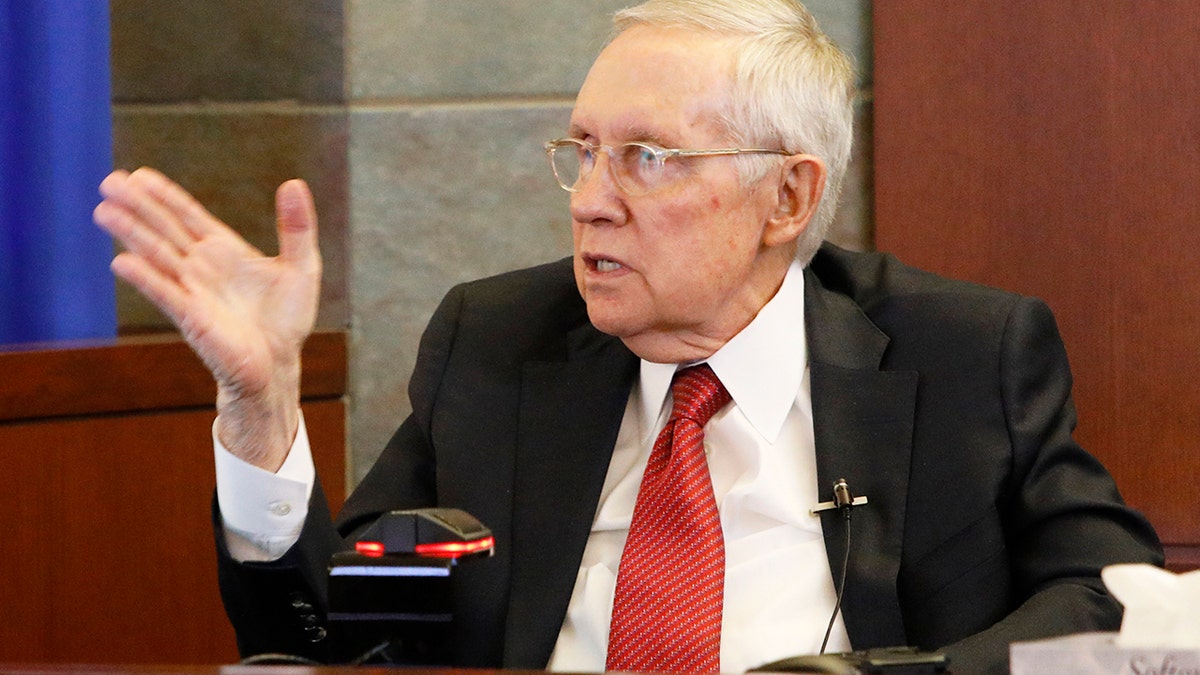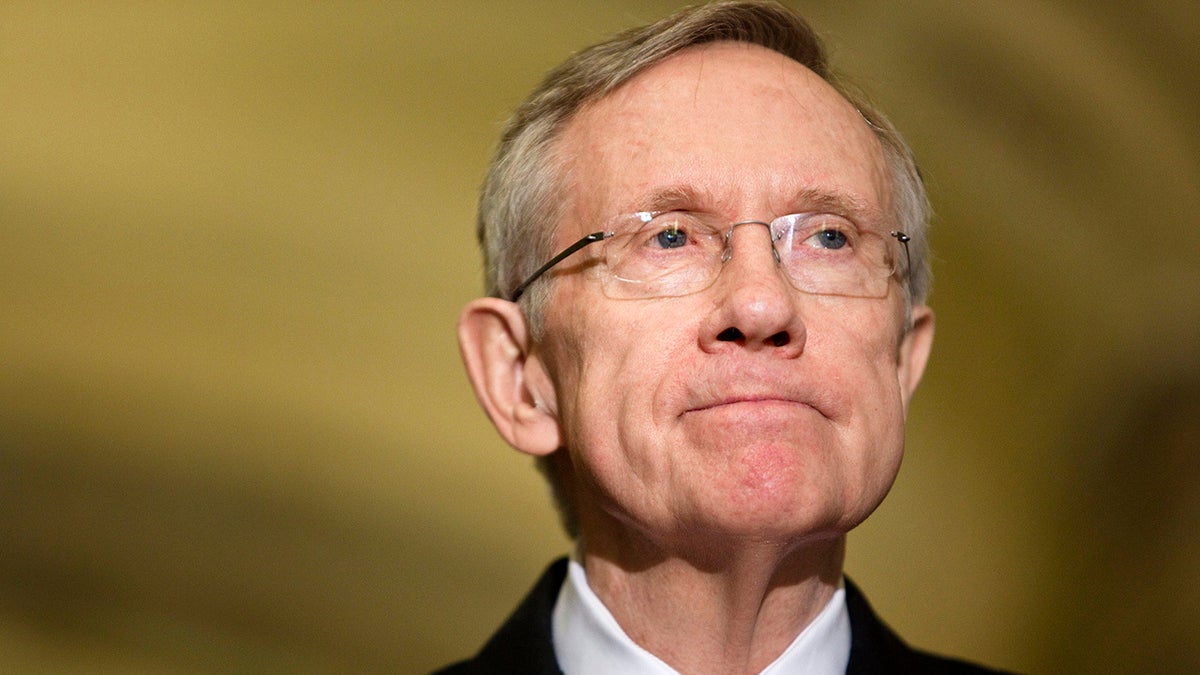Fox News Flash top headlines for December 28
Fox News Flash top headlines are here. Check out what's clicking on Foxnews.com.
Harry Reid, a longtime Democratic U.S. senator from Nevada who rose to serve as Senate majority leader from 2007 to 2015, died Tuesday at age 82.
Reid, who was diagnosed with pancreatic cancer in 2018, served in Congress from 1983 until his retirement in 2017. He announced in 2019 his cancer was in remission.
He became most well-known for his use of the "nuclear option" in 2013, leading the charge to end the filibuster on executive branch nominees and judicial nominees other than to the Supreme Court.
HARRY REID CALLS ELIZABETH WARREN A 'GOOD PERSON,' BUT REFUSES TO ENDORSE HER FOR PRESIDENT
Reid’s responsibility for the nuclear option is not without irony.
As a freshman senator in December 1987, the Nevada Democrat found himself before the Senate Rules Committee. The subject: Potential rules changes to halt some prerogatives of unlimited debate - a Senate fundamental that distinguishes the body from the House.
"We are not trying to turn the Senate into another House of Representatives," said Reid at the time, not a full year into his first Senate term. "I’ve developed a great respect, even an awe, for the rules and procedures of the Senate."
Reid continued.
"The rules are a carefully-crafted compromise designed to protect the right of a majority to prevail while preserving the right of a minority to prolong debate," said Reid.
Reid initially broke into elected office in 1969, serving in the Nevada Assembly until 1971. He then served as lieutenant governor of Nevada from 1971-1975 before being elected to serve Nevada's first district in the U.S. House of Representatives in 1982. He was first elected to the Senate in 1987.

Former U.S. Sen. Harry Reid speaks from the witness stand, Thursday, March 28, 2019, in Las Vegas. Reid testified in his negligence lawsuit against the maker of an exercise device. (Associated Press)
The Nevada lawmaker consistently bucked his own party on the issue of Roe v. Wade, which he believed should be overturned. A fierce advocate of conservation, he helped spearhead designating nearly 5.1 million acres of Nevada land as federally protected.
"Harry Reid was one of the most amazing individuals I've ever met," Senate Majority Leader Chuck Schumer, D-N.Y., said in a statement Tuesday. "He was my leader, my mentor, one of my dearest friends."
Reid played a central role in helping push the agenda of former President Barack Obama, leading the charge to unify all 60 members of the Democratic caucus in support of the Affordable Care Act in 2009.

Senate Majority Leader Harry Reid, D-Nev., pauses while speaking on Capitol Hill Dec. 6, 2009, in Washington, DC. (Getty Images)
Despite widespread backlash to that law during the 2010 midterm elections, Reid defeated Tea Party favorite Sharron Angle by six points as other Republicans won a landslide election to retake the House.
Reid’s wisp-thin voice betrayed his steely exterior. For instance, barely anyone could hear Reid speak over the din in the Capitol Rotunda during a presentation of the Congressional Gold Medal to golf icon Jack Nicklaus. But that soft-spoken tone didn’t mean that Reid won’t rumble with practically anyone.
In 2008 session with the press, Reid scolded journalists for not grasping the nuances of a parliamentary tactic on energy legislation. Reid admonished the scribes that they should "watch the floor more often. You might learn something." Minutes later, another reporter still wasn’t clear on Reid’s procedural plan. The Nevada Democrat asked the reporter if she "spoke English" and questioned whether she was hard of hearing.
"Turn up your Miracle-Ear," Reid berated the reporter.
Even visitors to the U.S. Capitol weren’t immune to Reid’s umbrage.
"In the summertime, because of the high humidity and how hot it gets here, you could literally smell the tourists coming into the Capitol," Reid said during the 2008 dedication of the U.S. Capitol Visitor’s Center.
CLICK HERE TO GET THE FOX NEWS APP
Born in Searchlight, Nevada, Reid was the third of four sons. He attended Southern Utah University before graduating from Utah Stave University in 1961, where he double-majored in political science and history. From there he attended George Washington University Law School, working as a Capitol Police officer while simultaneously earning his J.D. degree in 1964.
He is survived by his wife, Landra Gould, and five children.













































